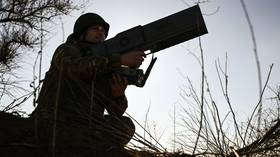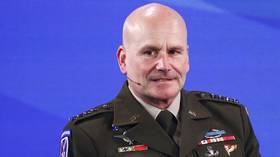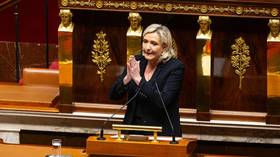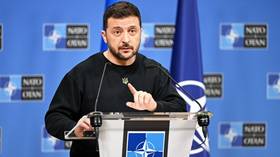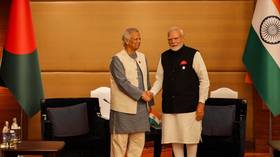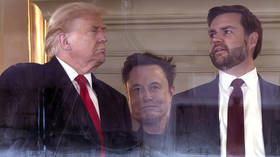Joint declaration on South Ossetia signed in Moscow
The leaders of the Collective Security Treaty Organisation (CSTO) have signed a joint declaration on recent developments in the Caucasus at a meeting in Moscow on Friday. The group also expressed its support of Russia's
The issue has also been at the forefront of EU foreign ministers’ talks in France.
Countries in the Collective Security Treaty Organisation will make their own minds up on the issue of recognising South Ossetia. This was the conclusion of Russia's President Medvedev, following a summit of the organisation.
“All our partners in the CSTO will be guided by their own opinion on the issue of the independence of South Ossetia and Abkhazia. This is how it should be according to the norms of international law. They'll be guided by their own national interests. Russia believes this is absolutely right,” Dmitry Medvedev said.
But the Armenian President stressed that the members of the organisation should show a united front in different issues, including foreign policy.
“Along with strengthening the military aspects of CSTO, we must also coordinate our foreign policy, because we are members of one organisation,” said Armenian President, Serzh Sargsyan.
The Collective Security Treaty Organisation (CSTO) which includes Russia and six of its neighbouring countries – Armenia, Belarus, Kazakhstan, Kyrgyzstan, Tajikistan and Uzbekistan – backed Russia's actions in South Ossetia and condemned Georgia's aggression in a joint statement issued on Thursday.
“The statement highlights the key points and has all the necessary verifications, including condemnation of Georgia's military actions against South Ossetia. It condemns the policy of double standards and admits the situation in the conflict zone is dangerous,” said Russian Foreign Minister, Sergey Lavrov.
Russia is clearly satisfied with the support, but there is still a lot of work to be done and diplomatic talks continue on Friday at the highest level.
To watch the full press-conference of the leaders of the Collective Security Treaty Organization in Moscow, please follow link.
Meanwhile, a two-day informal meeting of EU foreign ministers which started in Avignon, France, on Friday will focus on the situation in the Caucasus.
The summit in Avignon will examine the questions of rendering humanitarian aid to Georgia and assistance in restoring its economy. The EU FMs will also consider the effect of events in South Ossetia on relations between Russia and the EU.
The special EU summit on September 1 took a moderate stance concerning Russia. Although denouncing the recognition of South Ossetia and Abkhazia, the EU leaders refrained from taking any sanctions against Russia.
At the same time, there is a group of countries inside the EU, which continue pushing through a tough anti-Russian line. The core of the bloc includes the Baltic states, Poland and the UK.
The second day of the informal EU foreign ministers’ summit is expected to be devoted to the European Union’s relations with the U.S. and their future prospects.
The French Foreign Minister Bernard Kouchner will also deliver a report on his trip to the Middle East.




